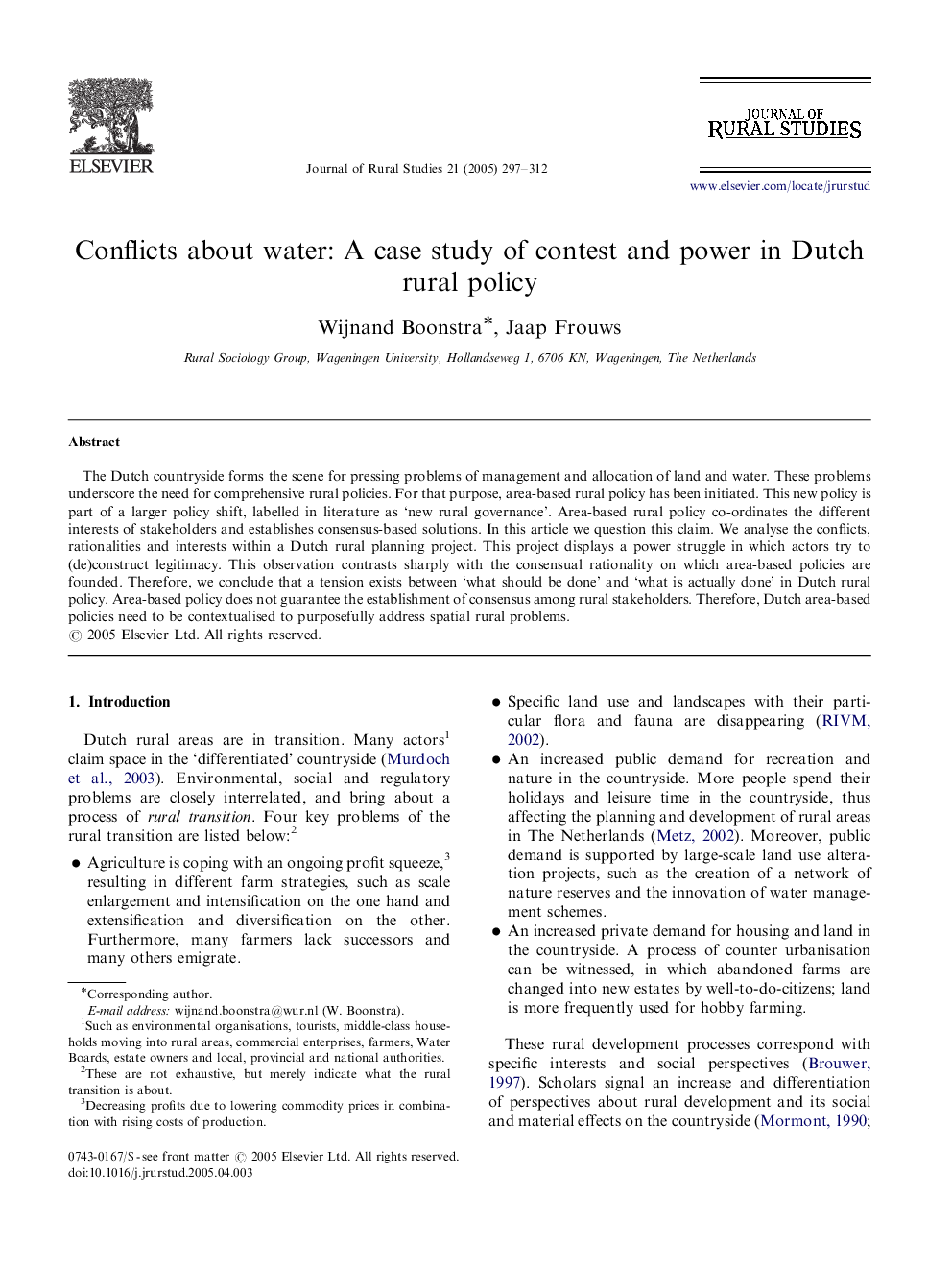| Article ID | Journal | Published Year | Pages | File Type |
|---|---|---|---|---|
| 10251470 | Journal of Rural Studies | 2005 | 16 Pages |
Abstract
The Dutch countryside forms the scene for pressing problems of management and allocation of land and water. These problems underscore the need for comprehensive rural policies. For that purpose, area-based rural policy has been initiated. This new policy is part of a larger policy shift, labelled in literature as 'new rural governance'. Area-based rural policy co-ordinates the different interests of stakeholders and establishes consensus-based solutions. In this article we question this claim. We analyse the conflicts, rationalities and interests within a Dutch rural planning project. This project displays a power struggle in which actors try to (de)construct legitimacy. This observation contrasts sharply with the consensual rationality on which area-based policies are founded. Therefore, we conclude that a tension exists between 'what should be done' and 'what is actually done' in Dutch rural policy. Area-based policy does not guarantee the establishment of consensus among rural stakeholders. Therefore, Dutch area-based policies need to be contextualised to purposefully address spatial rural problems.
Related Topics
Life Sciences
Agricultural and Biological Sciences
Forestry
Authors
Wijnand Boonstra, Jaap Frouws,
